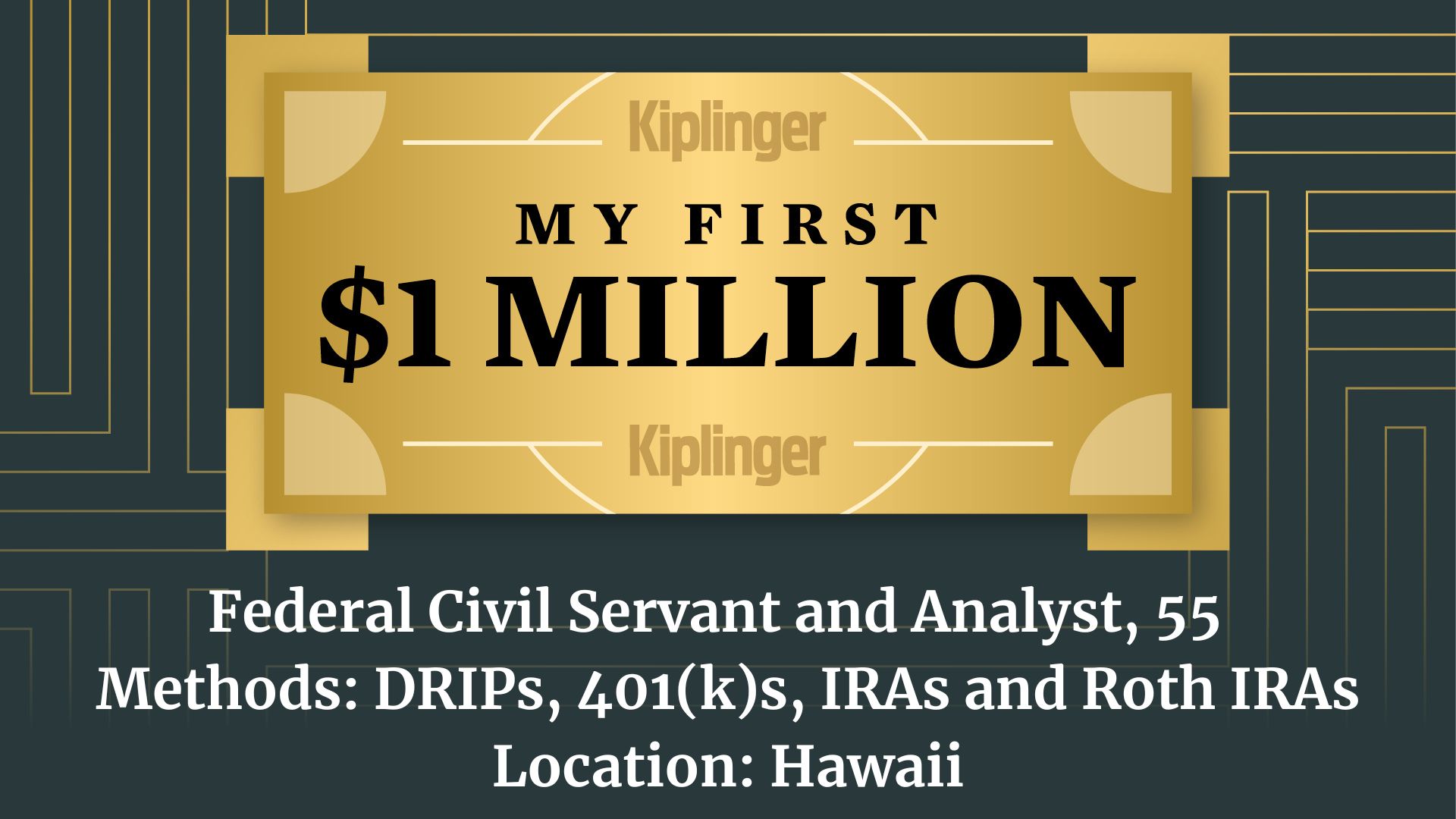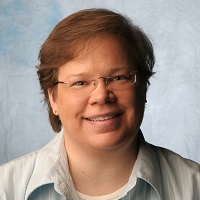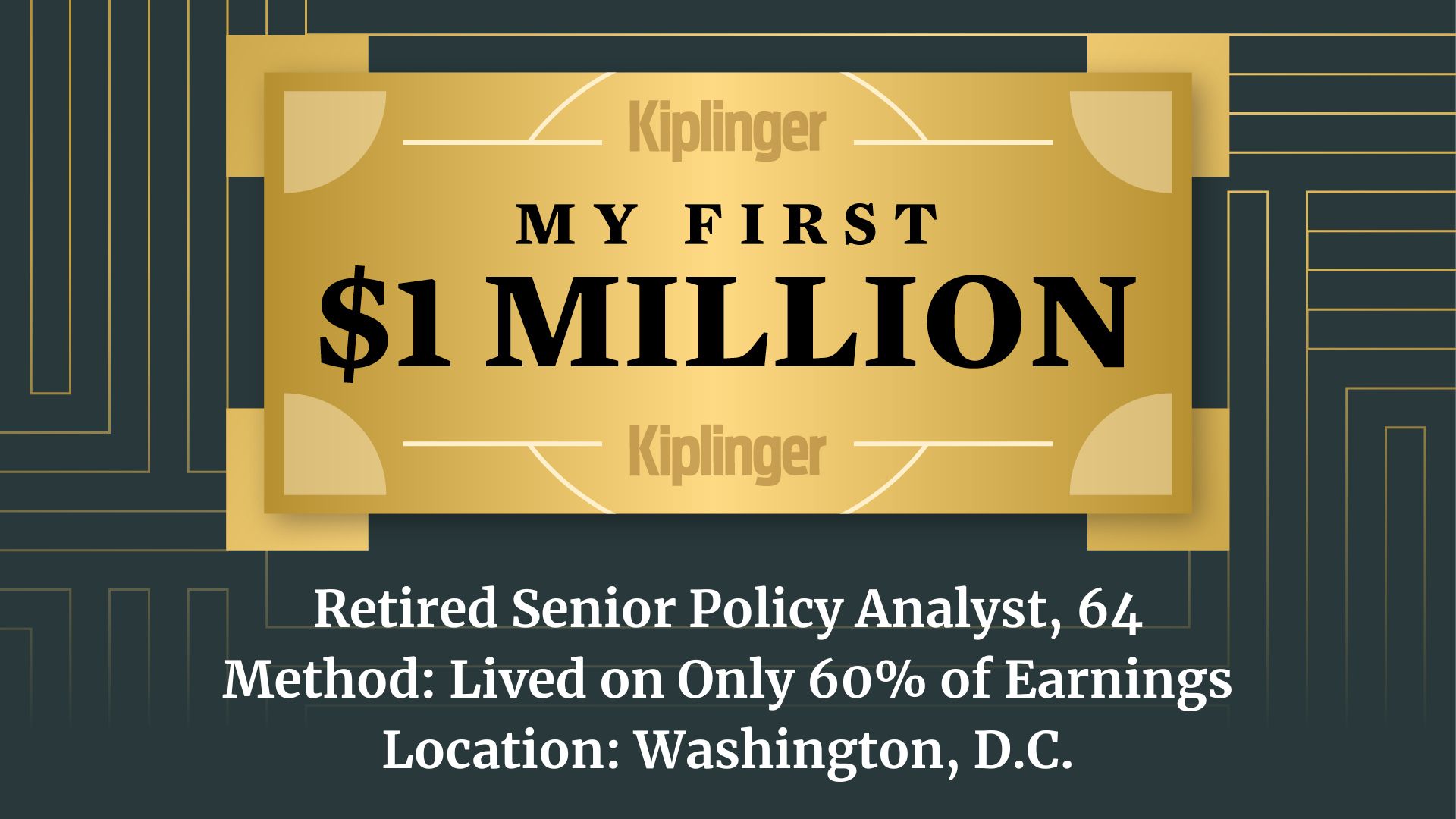My First $1 Million: Federal Civil Servant and Analyst, 55, Hawaii
"My parents got me into saving and investing when I was 13 because I liked to read the stock prices in the newspaper right after the comics."


Profit and prosper with the best of Kiplinger's advice on investing, taxes, retirement, personal finance and much more. Delivered daily. Enter your email in the box and click Sign Me Up.
You are now subscribed
Your newsletter sign-up was successful
Want to add more newsletters?
Welcome to Kiplinger's My First $1 Million series, in which we hear from people who have made $1 million. They're sharing how they did it and what they're doing with it. This time, we hear from a 55-year-old married federal civil servant and analyst who lives in Hawaii.
See our earlier profiles, including a writer in New England, a literacy interventionist in Colorado, a semiretired entrepreneur in Nashville and an events industry CEO in Northern New Jersey. (See all of the profiles here.)
Each profile features one person or couple, who will always be completely anonymous to readers, answering questions to help our readers learn from their experience.
From just $107.88 $24.99 for Kiplinger Personal Finance
Become a smarter, better informed investor. Subscribe from just $107.88 $24.99, plus get up to 4 Special Issues

Sign up for Kiplinger’s Free Newsletters
Profit and prosper with the best of expert advice on investing, taxes, retirement, personal finance and more - straight to your e-mail.
Profit and prosper with the best of expert advice - straight to your e-mail.
These features are intended to provide a window into how different people build their savings — they're not intended to provide financial advice.
THE BASICS
How did you make your first $1 million?
It grew from DRIPs (dividend reinvestment plans). Remember those?
I started in my teens, and we invested in our retirement accounts monthly since our early 20s, maxing out IRAs by our mid-20s and maxing out 401(k)s by our early 30s.

Our investments hit the magic number when we were 40, and net worth a couple years after that.
What are you doing with the money?
I'm keeping it right where it is, invested largely in low-fee index funds or dividend-reinvestment programs.
THE FUN STUFF
Did you do anything to celebrate?
I think we said cheers to our Quicken account with a beer.

Does anyone know you're a millionaire?
Just one family member, who is even better positioned. We're both a bit embarrassed by it, I think, when others haven't been as fortunate.
We were raised to pay attention to our finances, but you didn't brag about it (or complain about it if things didn't go well).

It is likely other relatives have hit this mark, but it isn't something we discuss. It is often demonstrated through generosity, sometimes through personal spending, but never talked about.
Also, I talk openly about finances with one coworker of a similar age, as we're both in the same position and face the same concerns.
What is the best part of making $1 million?
There is a sense of security. Even though the number itself is largely symbolic, that kind of basis can potentially provide an income (or future growth) that could mean nearly indefinite security.

Did your life change?
Not day-to-day, no, but we definitely have a greater sense of security.
Any plans to retire early?
With the benefit of multiple pensions, passive income streams and our more traditional investments, we will be retiring in our mid- to late-50s.
LOOKING BACK
Anything you would do differently?
I would have taken advantage of a Roth 401(k) as soon as it was available. We converted our traditional IRAs to Roth IRAs as soon as that was an option in the late '90s, but we only started investing in Roth 401(k)s instead of our traditional accounts three years ago.
We didn't appreciate the future tax burden — that when RMDs (required minimum distributions) start well into our retirement, combined with our military and government pensions, we'll have a higher taxable income than we ever did while working.
A good problem to have, some might say, but it could have been managed much better.
I would also have opened an IRA when I first wanted to when I was 16, but I was talked out of it.
Did you work with a financial adviser?
We used a fee-based financial adviser twice for sanity checks on our planning and progress when we were 10 and five years out from our projected retirements.
He was an independent adviser I met at a retirement planning seminar at work.
Kiplinger Personal Finance magazine has been my financial adviser since 1993. Before that, my dad would give me The Kiplinger Letter when he was through with it, highlighting sections he thought especially relevant to him, helping me learn what to look for and think critically about it.
James Glassman (Kiplinger and The Washington Post), Kimberly Lankford (Kiplinger), Michelle Singletary (The Washington Post) and so many more at Kiplinger ...
Did anyone help you early on?
My mom and dad always encouraged saving. From my first passbook savings account to my first mutual fund, they got me into (saving and investing) when I was 13 because I liked to read the stock prices in the newspaper right after the comics.

They were always showing just the right level of interest and support.
LOOKING AHEAD
Plans for your next $1 million?
To have it come from growth in Roth accounts!
Any advice for others trying to make their first $1 million?
Slow and steady wins the race. Let dollar-cost averaging do the work for you, manage some of the risk. Make regular investments, directly from your paycheck when possible.

Live within your means early, and as income rises (wages and investment income), try to treat it as only investment funds, not funds for increasing your standard of living at the moment.
Take a retirement planning course early in your career, then again at midcareer and again as you approach your final working years. Situations and laws change.
We were relatively lucky with our set-it-and-forget-it approach.
I think that making investing a habit very early on makes it difficult not to be successful.
Do you have an estate plan?
Yes. I learned the importance of estate planning from my parents ... and Kiplinger.
What do you wish you'd known when you first started saving?
I wish I hadn't assumed I'd be in a lower tax bracket or that tax rates would be lower in retirement. We protected a lot of income from really low taxes for a couple decades and now have to scramble to plan Roth conversions.
If you have made $1 million or more and would like to be anonymously featured in a future My First $1 Million profile, please fill out and submit this Google Form or send an email to MyFirstMillion@futurenet.com to receive the questions. We welcome all stories that add up to $1 million or more in your accounts, although we will use discretion in which stories we choose to publish, to ensure we share a diversity of experiences. We also might want to verify that you really do have $1 million. Your answers may be edited for clarity.
RELATED CONTENT
- You're 62 Years Old With $1 Million Saved: Can You Retire?
- Want to Earn $1 Million More Over Your Lifetime? Do This
- Do You Have at Least $1 Million in Tax-Deferred Investments?
- Are You Rich? U.S. Net Worth Percentiles Can Provide Answers
- Compare Your Net Worth by Age
Profit and prosper with the best of Kiplinger's advice on investing, taxes, retirement, personal finance and much more. Delivered daily. Enter your email in the box and click Sign Me Up.

As Contributed Content Editor for the Adviser Intel channel on Kiplinger.com, Joyce edits articles from hundreds of financial experts about retirement planning strategies, including estate planning, taxes, personal finance, investing, charitable giving and more. She has more than 30 years of editing experience in business and features news, including 15 years in the Money section at USA Today.
-
 Thinking of Switching Phone Carriers? Do These 8 Things First
Thinking of Switching Phone Carriers? Do These 8 Things FirstSwitching carriers is easier than ever, but overlooking the fine print could cost you. Here’s what to check before you make the move.
-
 Samsung Galaxy S26 Ultra: What to Know Before You Upgrade
Samsung Galaxy S26 Ultra: What to Know Before You UpgradeThe Galaxy S26 Ultra brings new features and strong launch deals, but whether it’s worth upgrading depends on what you already own.
-
 Nasdaq Soars Ahead of Nvidia Earnings: Stock Market Today
Nasdaq Soars Ahead of Nvidia Earnings: Stock Market TodayWednesday's risk-on session was sparked by strong gains in tech stocks and several crypto-related names.
-
 What Is an Assumable Mortgage and Could It Save You Thousands?
What Is an Assumable Mortgage and Could It Save You Thousands?With mortgage rates still elevated, taking over a seller’s existing home loan could lower monthly payments — if the numbers work.
-
 Have You Fallen Into the High-Earning Trap? This Is How to Escape
Have You Fallen Into the High-Earning Trap? This Is How to EscapeHigh income is a gift, but it can pull you into higher spending, undisciplined investing and overreliance on future earnings. These actionable steps will help you escape the trap.
-
 I'm a Financial Adviser: These 3 Questions Can Help You Navigate a Noisy Year With Financial Clarity
I'm a Financial Adviser: These 3 Questions Can Help You Navigate a Noisy Year With Financial ClarityThe key is to resist focusing only on the markets. Instead, when making financial decisions, think about your values and what matters the most to you.
-
 Where Olympians Store Their Medals is a Great Lesson For Your Valuables and Cash
Where Olympians Store Their Medals is a Great Lesson For Your Valuables and CashWhat you can learn about protecting your cash and values from where Olympians store their medals.
-
 An Executive's 'Idiotic' Idea: Skip Safety Class and Commit a Federal Crime
An Executive's 'Idiotic' Idea: Skip Safety Class and Commit a Federal CrimeSeveral medical professionals reached out to say that one of their bosses suggested committing a crime to fulfill OSHA requirements. What's an employee to do?
-
 How You Can Use the Financial Resource Built Into Your Home to Help With Your Long-Term Goals
How You Can Use the Financial Resource Built Into Your Home to Help With Your Long-Term GoalsHomeowners are increasingly using their home equity, through products like HELOCs and home equity loans, as a financial resource for managing debt, funding renovations and more.
-
 How to Find Free Money for Graduate School as Federal Loans Tighten in 2026
How to Find Free Money for Graduate School as Federal Loans Tighten in 2026Starting July 1, federal borrowing will be capped for new graduate students, making scholarships and other forms of "free money" vital. Here's what to know.
-
 My First $1 Million: Retired Senior Policy Analyst, 64, Washington, D.C.
My First $1 Million: Retired Senior Policy Analyst, 64, Washington, D.C.Ever wonder how someone who's made a million dollars or more did it? Kiplinger's My First $1 Million series uncovers the answers.